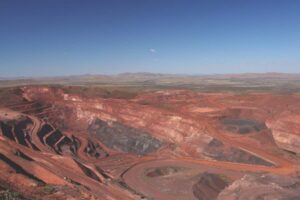It has been 10 years since hundreds of protesters were killed in Egypt’s Rabaa al-Adawiya Square, the biggest massacre in the country’s modern history. But for Amr Hashad, the memories will forever remain imprinted on his mind.
For weeks, tens of thousands of people had staged a mass peaceful sit-in at the square in Cairo, demonstrating against the military coup that had deposed Egypt’s first democratically elected president, Mohamed Morsi.
Determined to uphold the gains of the January 25 revolution that toppled long-term dictator Hosni Mubarak in 2011, Hashad took part in the protests because he was afraid of what Egypt’s military, a powerful institution in the country, could do in terms of derailing the democratic process and “destroying people’s hope”.
“I did not agree with Morsi’s politics or decisions, but I was there in Rabaa for the sake of respecting the people’s will that got him elected in the first democratic elections in the country,” Hashad, now a legal researcher, said.
A sprawling tent city emerged from the sit-in, with demonstrators demanding Morsi’s return. But just as the protest entered its sixth week, Egypt’s military carried out a bloody crackdown.
Hashad and his entire family were present at the square, and woke up at 6am to the sound of military helicopters flying above them and repeated warnings from the army through a loudspeaker to leave.
However, hundreds of armoured vehicles had already blocked the five main exits to the square, and snipers were stationed on nearby rooftops, targeting the people below.
“The army and security forces began firing live ammunition at the protesters,” Hashad recalled. “I saw so many bodies that day.”
Bulldozers were also sent in to demolish the protest camp. Smoke engulfed the square as a huge fire broke out, burning down the tents and spreading to the adjacent Rabaa al-Adawiya Mosque.
“I saw road rollers, the kind used to roll over concrete or asphalt, crushing people, flattening their flesh to the ground,” Hashad said. He paused, and let out a small sigh.
“I also saw a group of people trying to leave the square with their hands up, and a sniper picking them out one by one, killing them all. I saw people sitting inside a tent and a bulldozer trampling on them. I saw bodies being sprayed with something from the planes above that burned their skin.”
According to Human Rights Watch (HRW), at least 904 people were killed by Egyptian forces. The majority – 817 – were at Rabaa al-Adawiya Square, and 87 others were killed at the nearby al-Nahda Square. But unidentified bodies and missing individuals mean the death toll was likely to be above 1,000.
HRW described the massacre as the “worst single-day killing of protesters in modern history”.
Government officials claimed that the use of force was a response to violence used by protesters, and the Egyptian state has sought to portray Rabaa – and the mainly Muslim Brotherhood supporters gathered there – as a hotbed for radicalism. However, human rights organisations have only found evidence of a limited number of weapons used by some people at the site, which they argue does not justify the lethal attack on the majority of unarmed protesters.
The minister of defence at the time, Abdel Fattah el-Sisi, became president a year later in elections that have been widely criticised for being unfair. El-Sisi has been in power since, and has changed the constitution several times to allow himself to rule for years.
Imprisonment and exile
For Hashad, his and his family’s ordeal had only just begun on that fateful day. His father was thought to have been killed, but after three days, they found out he had actually survived, despite being shot in the back and shoulder three times. Hashad’s father was later imprisoned for a year and a half.
Hashad’s brother was imprisoned for his activism, and remains behind bars. And Hashad himself was imprisoned five months later, in January 2014, for unlawful protesting, damaging public property, and disrupting public order.
“I was given a military trial, despite being a civilian, and initially sentenced to three years for unlawful protesting. When my sentence was nearing its end, the authorities tried to pin different cases on me to keep me in prison longer, despite these cases taking place while I was still behind bars.”
In total, Hashad says he spent five years in 11 different prisons. As soon as he was released, he fled his country for Turkey, knowing that he was not safe in Egypt, with human rights groups documenting the targeting of political prisoners by authorities.
According to several rights groups, there are an estimated 60,000 political prisoners being held in Egyptian jails, more than half of the country’s estimated prison population of 114,000. El-Sisi has long maintained that there are “no political prisoners in Egypt”.

‘Getting away with mass murder’
Hashad settled in the United Kingdom in April of this year, and has observed the ramifications of August 14, 2013 on Egyptian society with a heavy heart.
“The Rabaa massacre has had dire consequences for the makeup of Egyptian society, namely in encouraging violent behaviour,” he said. “Deadly violent attacks are the norm now, such as the case of the university student who was stabbed to death on campus for rejecting a fellow student’s advances.”
He also pointed to how criminals are treated inside prisons compared with political prisoners.
“What’s happening now is that these criminals who get imprisoned are subjected to being brainwashed by ISIL inmates, who get better treatment from prison authorities like access to books, and more recreational time,” he claimed. “On the other hand, political prisoners are severely abused in jail.”
Hashad is not hopeful about Egypt’s future, pointing to the lack of criminal justice brought to those responsible for killing the protesters.
“This lack of accountability and pressure from international governments on Egypt has given authorities the green light to carry on killing political prisoners behind bars,” he said.
Speaking on the 10-year anniversary of the massacre, Amnesty International said the last decade in Egypt could only be described as a “decade of shame“.
“The Rabaa massacre was a turning point following which the Egyptian authorities have relentlessly pursued a zero-tolerance policy of dissent,” said Philip Luther, Amnesty International’s research and advocacy director for the Middle East and North Africa. “Since then, countless critics and opponents have been killed in street protests, left to languish behind bars or forced into exile.”
Luther went on to say that the lack of a “robust response” by the international community has allowed the Egyptian military and security forces to “get away with mass murder quite literally”.
“There is no hope of Egypt emerging from its ongoing human crisis without accountability for the actions of the Egyptian authorities on that darkest of days in Egypt’s modern history,” he said.
Source : AL JAZEERA









